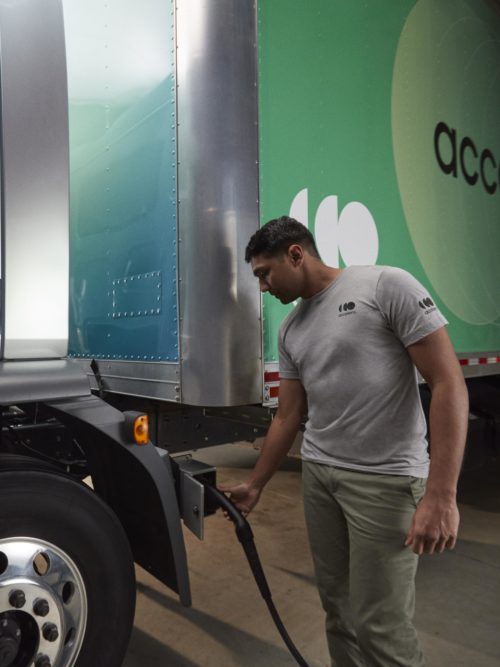Truck manufacturers plan to build joint battery factory to ensure U.S. supply
$2 to $3 billion joint venture will be equally owned by Cummins, Daimler, and Paccar

A coalition of three truck and engine manufacturers today launched an estimated $2 to $3 billion joint venture to produce battery cells in the U.S., saying the move will meet demand for electric commercial vehicles and industrial applications, while creating desirable U.S. manufacturing jobs in the growing clean technology sector.
The initiative will create a 21-gigawatt hour (GWh) factory that is backed by a 30% ownership stake by each of the three main partners: Accelera by Cummins (the zero-emissions business unit of Cummins Inc.), Daimler Trucks & Buses US Holding LLC, and Paccar (the producer of Kenworth, Peterbilt, and DAF trucks). The remaining 10% stake will be held by EVE Energy, a publicly traded Chinese firm that will serve as the technology partner, contributing its battery cell design and manufacturing know-how.
The announcement did not disclose the location of the planned factory or how many batteries it could manufacture in a year. But the average American house in 2022 consumed about 10,000 kilowatt hours (kWh) of electricity per year, according to the U.S. Energy Information Administration. So at 21 gigawatt hours of output, the factory's batteries could theoretically keep the lights on in 2,100 houses for an entire year.
In transportation terms, gigawatts are like horsepower, a measure of maximum output at any given moment in time. And gigawatt hours indicate how long a device can sustain that top effort. As one yardstick, the biggest battery available in Daimler's own 2022 battery electric Freightliner eCascadia runs at almost 440 kilowatt hours. At that rate, the proposed factory’s annual output of 21 gigawatt hours of stored energy could offer a single full charge to 47,727 such trucks.
Or, if an electric truck ran for a typical commercial distance of 45,000 miles per year and had to recharge every 230 miles (in the case of Daimler’s latest model), it would need 195 full recharges. Under those conditions, the new factory could keep a fleet of 245 trucks running for a year.
The partners said they will initially focus on the lithium-iron-phosphate (LFP) battery technology family for commercial battery-electric trucks, saying that design offers several advantages compared to other battery chemistries, including lower cost, longer life, and enhanced safety, without the need for nickel and cobalt raw materials.
By joining forces, the three partners said they will create sufficient volume to manufacture the batteries at a large scale and low cost. “For Daimler Truck, partnerships and a strict focus on costs and smart capital allocation are the key levers to succeed on the path towards sustainable transportation. This planned joint venture enables economies of scale beyond Daimler Truck. It is a key puzzle piece of our battery industrialization strategy, ensuring access to the right battery cell technology at the right cost,” Martin Daum, CEO of Daimler Truck, said in a release.
Editor's note: This article was revised on September 6 to clarify the definition of gigawatts.
Related Articles

Copyright ©2024. All Rights ReservedDesign, CMS, Hosting & Web Development :: ePublishing